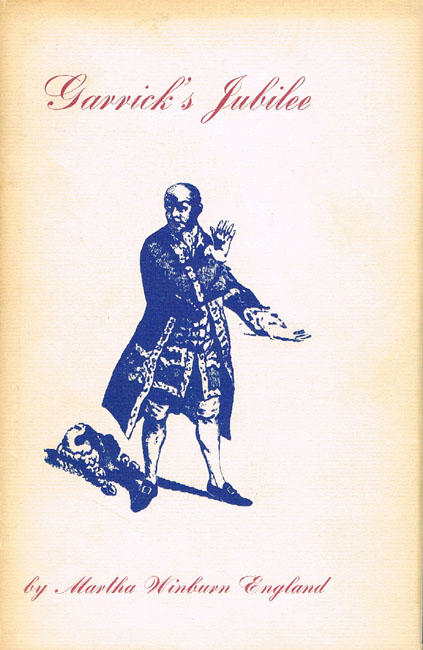Garrick’s JubileeMartha W. England |
 1964 Literary Criticism / European / English, Irish, Scottish, Welsh; Performing Arts / Theater / General; History / Europe / Great Britain 273 pp. 6x9 |
|||
|
read the full text of the book •
|
A comprehensive—and occasionally hilarious—study of the three-day festival staged by David Garrick, the brilliant actor and manager of the Drury Lane Theatre in London, at Stratford-upon-Avon, in September, 1769. This was the first Shakespeare festival to engage national interest, and although its critics vilified it as a fiasco and a monumental example of bad taste, its defenders thought it a glorious occasion. James Boswell, a member of the latter group, described it as being “not a piece of farce . . . , but an elegant and truly classical celebration of the memory of Shakespeare.” Reproduced on the stage in varying moods of glorification and satire, the Jubilee ultimately became entagnled in the very threads of English life. The combination of Garrick and Stratford produced a catalyst that precipitated the concepts of romanticism, and from the vantage point of two centuries, the importance of the Jubilee is its place in the history of ideas, and its most amazing aspect is the speed and unanimity with which the romantic attitudes were adopted. Any actor will mirror as much of his age as is accessible to him, and the life of Garrick’s age was accessible to him to a superlative degree, for he was peculiarly in a position to reflect the great minds of his day—and he was a true mirror. Garrick’s Jubilee is an account of a unique occasion when perhaps the greatest actor who ever lived, rejecting all prudential advice, went to Stratford as Steward of a Jubilee and mirrored his age—not in its more obvious surfaces, but in its latent forces, its potentialities. Martha Winburn England is assistant professor of English at Queens College of the City University of New York. | |||

